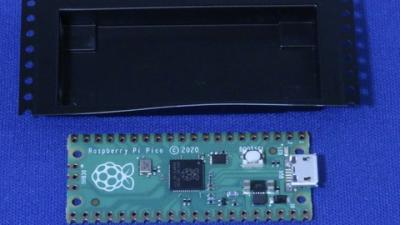Description
The Raspberry PI foundation have released the Raspberry PICO a powerful and cheap microcontroller. You can develop for this MicrController using Python or C/C++. Only with C and C++ can you get the full power of the device including access to the dual cores and the programmable IO capability.
Getting going can feel hard and that you are all thumbs. The bootsel loading strategy (like a usb key) can feel tedious within the development cycle. There are better ways to setup your environment to support an efficient Raspberry PICO development environment. So you can stop worrying about the tools and start focusing on your project.
Join us on this course to find out how to setup a working environment to:
- Easily build and deploy code quickly to the Raspberry Pico.
- Reuse others libraries as building blocks for your own work.
- Debug your work through GUI debugging environment
The course requires students to have:
- Raspberry PI PICO MicroController, which will be our target
- Raspberry PI 4 running Ubuntu or Raspberry OS, which will be our build and debug probe
- Windows or Mac Desktop or Laptop, which will become your coding environment
Prerequisite experience:
The course is focused on setup of environments for Raspberry PICO C development. Some knowledge of C is expected though the examples used are all very basic.
Some soldering is required to attach header pins to the Raspberry PICO and familiarity with soldering is desirable.
In the libraries section some simple external electronics are used (5mm LED and WS2812B LEDS). Beginner knowledge of electronics or willingness to do some external reading is required. These are very straight forward and should not put anyone off who is wanting to explore the Raspberry PICO.

